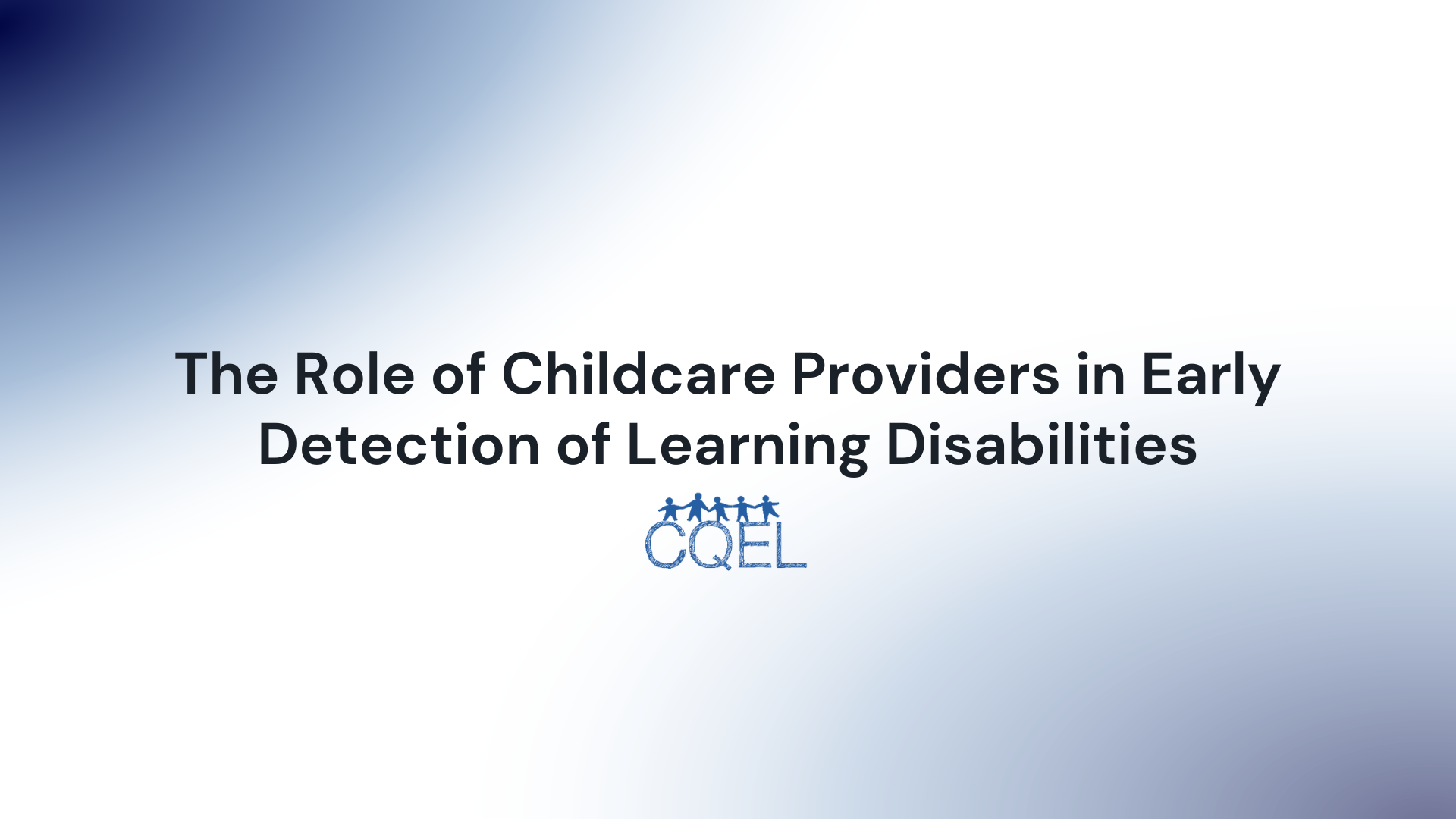The Role of Childcare Providers in Early Detection of Learning Disabilities
By closely observing children’s developmental milestones, behavior patterns, social interactions, and learning styles, childcare providers can identify early signs of learning disabilities.

Childcare providers play a crucial role in the early detection of learning disabilities in children. Their constant interaction with children during critical developmental years makes them uniquely positioned to observe and identify potential learning challenges. By closely observing children’s developmental milestones, patterns of behavior, social interactions, and learning styles, childcare providers can identify early signs of learning disabilities.
Recognizing Early Signs of Learning Disabilities
Some learning disabilities can begin to emerge as early as preschool. Childcare providers should be vigilant for signs such as difficulty recognizing letters and numbers, problems following simple instructions, struggles with fine motor skills, or challenges communicating with peers. It's important to remember that all children develop at their own pace, and a delay in one area doesn't necessarily indicate a learning disability. However, if a child consistently struggles in a particular area, it might be a sign of a learning disability.
Supportive Strategies in the Childcare Setting
Childcare providers can implement supportive strategies to help children who may have learning disabilities. This can involve differentiated instruction, breaking tasks into smaller steps, providing additional practice opportunities, or using multi-sensory teaching methods. They can also create an inclusive environment that celebrates every child's unique strengths and abilities.
Collaboration with Parents
Collaboration with parents is key when a potential learning disability is identified. Regular and open communication can help share observations, concerns, and strategies. Providing resources to parents, like the Parent Center Hub, can help them understand and navigate the possible next steps.
Professional Development and Training
For childcare providers, it's important to educate oneself about learning disabilities continually. Regular training can help providers stay updated with the latest research, interventions, and strategies. Numerous online resources are available such as the Learning Disabilities Association of America and Understood.
When to Seek a Professional Evaluation
If a child consistently struggles despite supportive strategies, it may be time to suggest a professional evaluation. Early intervention services, which include various therapies and educational support, can be incredibly beneficial for children with learning disabilities. The Center for Parent Information and Resources provides an excellent overview of early intervention services.
The role of childcare providers extends beyond care and education; they're often the first to identify early signs of learning disabilities in children. Through vigilant observation, implementation of supportive strategies, collaboration with parents, continued professional development, and knowing when to recommend a professional evaluation, childcare providers can make a significant difference in the lives of children with learning disabilities.
